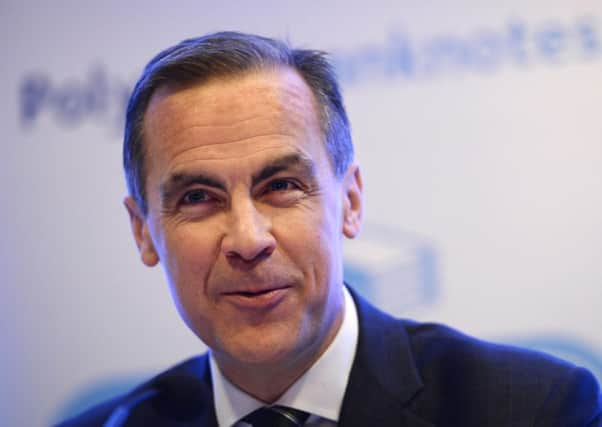Mark Carney to bring in new interest rate rules


In a speech at the world economic forum in Davos yesterday, the bank’s governor, Mark Carney, scuttled speculation of a rate hike any time soon as he warned that, despite a huge improvement in economic growth over the last year, UK businesses were still in need of life support.
“A few quarters of above-trend growth driven by household spending represent a good start, but they aren’t sufficient,” he said. The Canadian said he would not consider hiking interest rates until unemployment fell below 7 per cent UK-wide.
Advertisement
Hide AdAdvertisement
Hide AdThe policy was intended to reassure borrowers and businesses that rates would remain at just 0.5 per cent for at least another two to three years, but a dramatic recovery in the labour market has rendered it practically useless within six months.
The governor’s comments follow a communications offensive by other members of the bank’s rate-setting monetary policy committee (MPC), who have offered reassurance on rates after news Britain’s unemployment rate fell to 7.1 per cent this week.
Mr Carney said the bank’s assessment of how to “evolve guidance to changing circumstances” would begin in its February inflation report, a key quarterly document that guides rate- setters on the MPC.
He pointed to the fact that the productivity and output of British businesses had not increased in line with the consumer-led recovery, and inflation had been falling in a further sign of weakness in the recovery. Investment by firms also remained subdued. The Bank of England usually raises rates as a defence against inflation, caused when the economy grows too fast. High unemployment usually dampens inflation as workers are in a weak position to negotiate better pay, but the recent strength in the labour market has not translated to significant wage growth.
Mr Carney told world leaders at their annual Swiss get-together that the rate of unemployment consistent with stable inflation now appears to be “somewhat lower” than the bank thought when it issued its forward guidance in August.
“This suggests that, even though unemployment is falling faster than expected, the recovery has some way to run before it would be appropriate to consider moving away from the emergency setting of monetary policy,” he said. He added that any eventual interest rise will be gradual and rates are “likely to remain below historical norms”.
Speaking in Davos earlier, Chancellor George Osborne rejected suggestions Mr Carney’s forward guidance policy had failed, adding that the bank was facing “the challenge of success”.
Official figures due next week are expected to show the UK economy grew by about 1.8 per cent last year – twice the rate being predicted 12 months ago but still slow compared to pre-recession levels.
Dr Howard Archer, chief UK economist at IHS, said: “The Bank of England’s communications offensive reinforces our view that interest rates will not rise in 2014.”